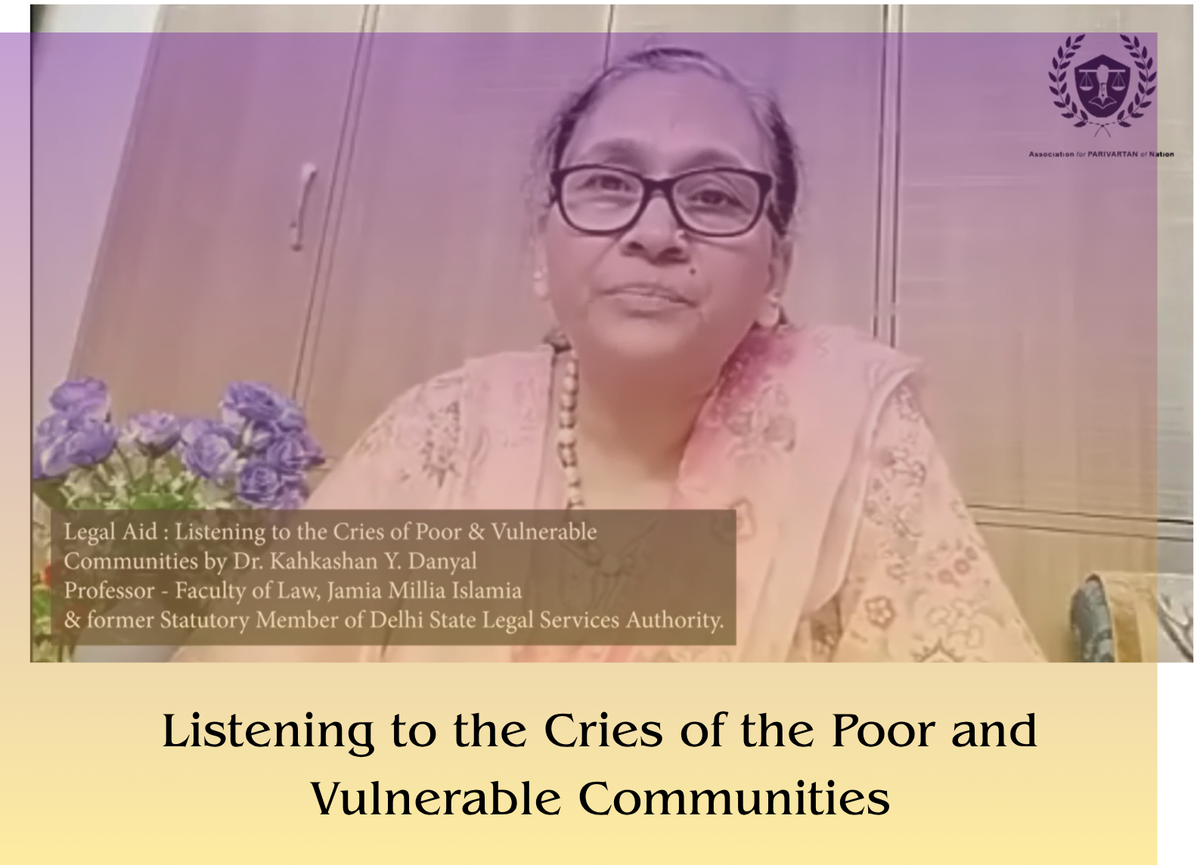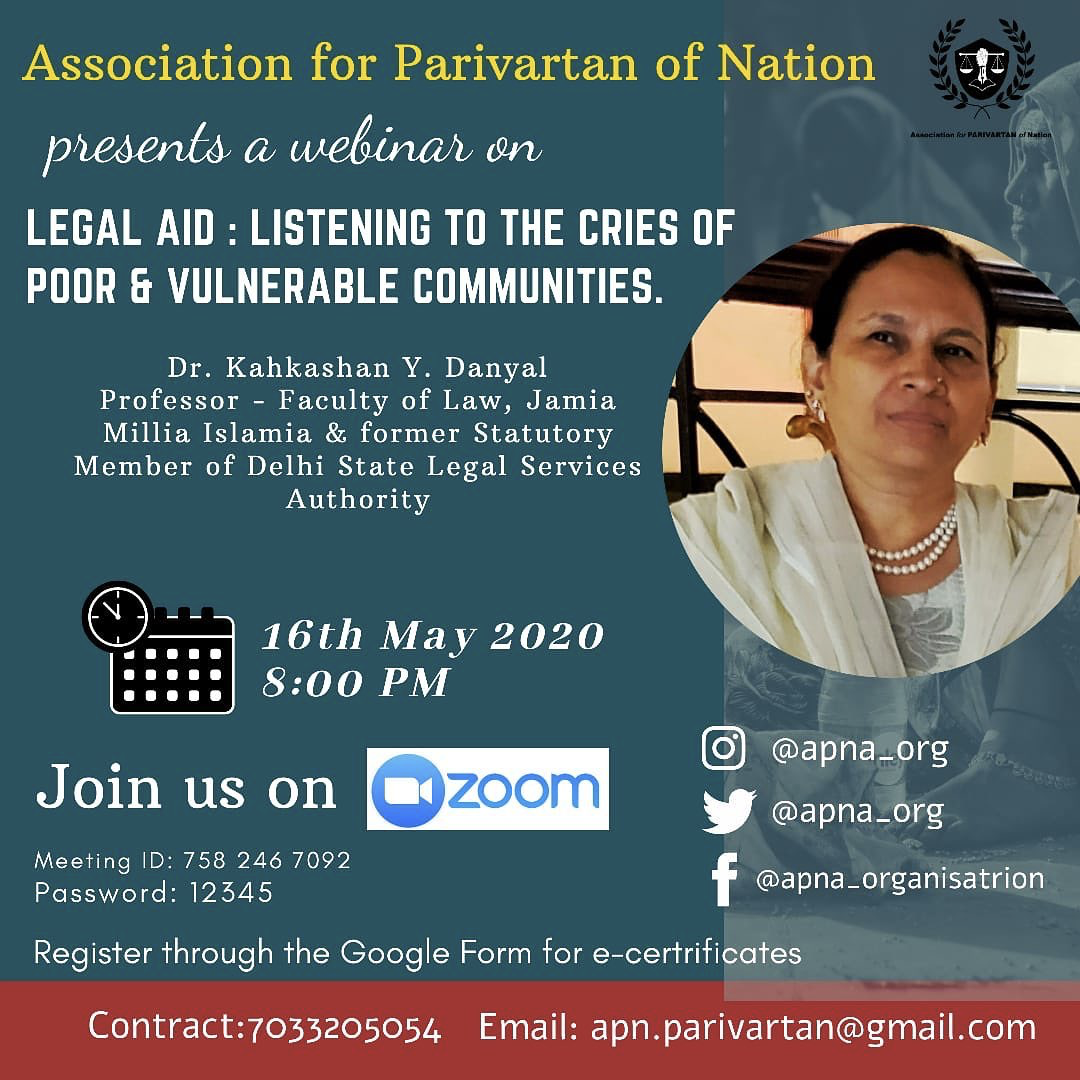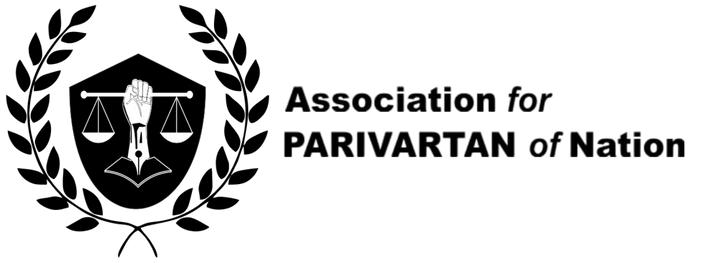APNA Webinar on Legal Aid: Listening to the Cries of the Poor and Vulnerable Communities
On 16 May 2020, APNA hosted a live session with 120+ participants on barriers to legal aid. Dr. Kahkashan Danyal highlighted Article 39A & the 1987 Act, stressing Lok Adalats’ role. Law students and grassroots voices urged outreach and youth action, affirming free legal aid as a right, not charity.

Listening to the Cries of the Poor and Vulnerable Communities
On 16th May 2020, the Association for Parivartan of Nation hosted a powerful live session on the importance of centring the challenges of poor and vulnerable communities in accessing legal aid within the justice system. The event was organised through Cisco Webex and brought together over 120 participants, including law students, grassroots workers, local leaders, and community representatives.
The keynote speaker was Dr. Kahkashan Y. Danyal, Professor at the Faculty of Law, Jamia Millia Islamia, and former Statutory Member of the Delhi State Legal Services Authority. Drawing upon her decades of experience, Dr. Danyal began by quoting the principles enshrined in Article 39A of the Constitution, which mandates free legal aid for weaker sections of society. She reminded the audience that “anything that contradicts this principle results in the absence of equality for the marginalised citizens of a democratic republic such as India.”
Dr Danyal traced the history of legal aid in India, highlighting the formation of the Committee for the Implementation of Legal Services (1980) and the passing of the Legal Services Authorities Act (1987). She explained that this Act not only guarantees free and competent legal aid but also identifies specific marginalised groups across class, caste, gender, disability, sexuality, and religion as entitled to such assistance. Importantly, victims of trafficking, natural disasters, ethnic violence, and industrial accidents are also covered under its provisions.
Particular attention was given to Chapter VI of the Act, which deals with the jurisdiction of Lok Adalats, alternative dispute resolution bodies designed to reduce the burden on the judiciary. Dr Danyal described Lok Adalats as “a lifeline for communities who cannot afford prolonged legal battles in overburdened courts.”
A local panchayat representative who joined from Jharkhand remarked, “For the poor, going to court is often the same as losing hope. What we need is more outreach, more trust-building, and young lawyers who are willing to stand with us.”
By the end of the session, 15 participants signed up to volunteer for APNA’s legal literacy drives, committing to conduct awareness sessions in their respective communities once public gatherings resumed after COVID-19 restrictions. Dr Danyal closed with an inspiring call to action, “Free legal aid is not charity- it is a constitutional right. As future lawyers, leaders, and citizens, you have a duty to ensure that no one is denied justice because of poverty or lack of awareness.” The session reaffirmed APNA’s commitment to amplifying the voices of marginalised communities and strengthening grassroots legal literacy.

